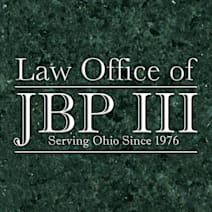Top Painesville, OH Child Custody Lawyers Near You
Decades of Family Law, Divorce and Custody Experience. When you call you will speak directly with Attorney Russell Kubyn.
Free Consultation
Achieving Solutions For Families In Transition, Helping Professionals Protect Their Careers and Livelihoods
Free Consultation
38021 Euclid Ave, Willoughby, OH 44094
Other Nearby Offices
Tibaldi Law has experience helping clients with their Child Custody needs in Painesville, Ohio.
Free Consultation
Virtual Appointments
37265 Euclid Ave, Willoughby, OH 44094
Other Nearby Offices
In the Painesville, Ohio area, Wiles Richards can help you resolve your Child Custody issues.
Se Habla Español
7445 Center Street, Mentor, OH 44060
Child Custody concerns can be addressed by Seacrist Law Office. This practice offers legal representation for clients in the Painesville, Ohio area.
Free Consultation
8373 Mentor Ave, First Floor, Mentor, OH 44060
Other Nearby Offices
Those seeking legal help with Child Custody can reach out to Russell Kubyn, Attorney at Law, a local practice representing people in Painesville, Ohio.
Free Consultation
7408 Center Street, Mentor, OH 44060
Clients in the Painesville, Ohio area who need legal help with Child Custody issues can connect with DePledge Law Office, Inc..
7980 Tyler Blvd., Mentor, OH 44060
Other Nearby Offices
Assisting people in Painesville with their Ohio Child Custody issues.
Free Consultation
950 Main Avenue, 4th Floor, Cleveland, OH 44113
Zashin Law, a reputable Child Custody firm representing clients in the Painesville, Ohio area.
Se Habla Español
6 Public Square, Medina, OH 44256
Get experienced Child Custody help from James B. Palmquist III Co LPA, a reputable law firm in Painesville, Ohio.
Free Consultation
25700 Science Park Dr., Suite 160, Beachwood, OH 44122
Child Custody concerns can be addressed by Ellen S. Mandell, Attorney at Law. This practice offers legal representation for clients in the Painesville, Ohio area.
Free Consultation
17407 Lorain Avenue, Suite 207, Cleveland, OH 44111
803 E Washington St, Suite 110, Medina, OH 44256
5910 Landerbrook Drive, #200, Cleveland, OH 44124
35888 Center Ridge Road, Suite 3, North Ridgeville, OH 44039
8353 Mentor Avenue, Mentor, OH 44060
1375 E. Ninth Street, Suite 900, Cleveland, OH 44114
1400 Fifth Third Center, 600 Superior Avenue East, Cleveland, OH 44114
127 Public Square, Suite 2000, Cleveland, OH 44114
200 Public Square, Suite 3500, Cleveland, OH 44114
1350 Euclid Avenue, Suite 650, Cleveland, OH 44115
20600 Chagrin Boulevard, Suite 703, Beachwood, OH 44122
700 W St Clair Ave, Suite 110, Cleveland, OH 44113
26600 Detroit Rd, Suite 300, Westlake, OH 44145
600 East Smith Road, Medina, OH 44256
23811 Chagrin Blvd, Suite 227, Beachwood, OH 44122
One Cleveland Center, Suite 3150, 1375 East Ninth Street, Cleveland, OH 44114
Painesville Child Custody Information
Lead Counsel independently verifies Child Custody attorneys in Painesville and checks their standing with Ohio bar associations.
Our Verification Process and Criteria
Ample Experience
Attorneys must meet stringent qualifications and prove they practice in the area of law they’re verified in.Good Standing
Be in good standing with their bar associations and maintain a clean disciplinary record.Annual Review
Submit to an annual review to retain their Lead Counsel Verified status.Client Commitment
Pledge to follow the highest quality client service and ethical standards.
What Do Judges Look for in Custody Cases?
In every state, family court judges must consider what is in the child’s best interests when determining custody. In most cases, judges emphasize making sure the child will spend ample time with both parents. To make this happen, a judge will likely want to know what each parent’s home environment is like, whether each parent will be able to give a child the proper attention, and which situation the child will be most likely to thrive in.
Who Has Legal Custody of the Child When the Parents Aren’t Married?
If the parents are not married, the child’s biological parents both have parental rights unless the law says otherwise. An exception to this could be if no father is listed on the child’s birth certificate. In that case, the father would have to go through the legal process of establishing paternity to be able to assert his parental rights for visitation.
How Can a Mother Lose Custody of Her Child?
A mother can lose custody of her child in much the same way a father could. This could include abusing the child, abusing drugs or alcohol, providing an unsafe home environment for the child, or abandoning the child.
How Can You Change a Child Custody Order?
If you or your ex are unhappy with the current custody arrangement, you can negotiate a change to your agreement. If a judge feels that the changes are still in the child’s best interests, then they may approve the order. If one of you is pressing ahead with seeking a change and the other parent is contesting it, you will need to prove a “substantial” change in circumstances. This could include one of the parents moving out of state, suffering from a disability or illness that affects their parenting ability, exposing the child to an unsafe environment, or having a change in work circumstances that requires rescheduling of visitation.











